IN THE FOOTPRINT OF THE MASTER
Fr. John Pitton; was born in the year 1943 in a small village called Barco in the north of Italy. It was during war; with many poor people struggling to survive. He recalled his mother saying that people, would look at him and say: “Oh poor child, he will not survive; he will die”. Re-echoing those words, he believed God’s plan for him was different since he survived and lived beyond those community predictions. He attended his primary and secondary school in Pordenone and in the same town, studied philosophy and theology and was ordained priest on the 7th July 1968 at the age of 25.
He spent his first 20 years of priesthood as a diocesan priest, appointed as the Parish Priest of a little town called Spilimbergo. He was very committed to pastoral work and to teach religion education in the schools. His relation with the parishioners and the students was very good. He noted the presence of some poor, sick and disables persons in the Parish and immediately they became his priority. To support them, he founded a charity group.
During all the time, working in Italy as Parish Priest, he kept good relations with the missionaries, referred to as a community of Comboni missionaries in the Diocese. He later visited some of their Missions in Kenya from where he developed and felt called to a missionary vocation; something that continued to grow in him. He later shared with and, in agreement with his superiors; on 10th October 1989 he was allowed to join the Comboni missionary and sent to the province of Malawi-Zambia, where he served for 9 years, very committed to the work of evangelization, which consisted in 3 points:
1) Announcement of the Good News;
2) Celebrating the Baptisms and the other Sacraments;
3) Charity. Yes, charity was an essential part of his evangelization, as Saint Theresa of Calcutta said: “Anytime you give some help to a person in need, whether he or she is a Christian or a Muslim or of any other faith or even without religion, you help that person to go nearer to God”.
During his last year in Malawi-Zambia, he read an article about the work of 2 Comboni Priests, who were living with vulnerable Christians and some orphaned children in a suburb of Kampala called Kataza. He felt a called and a strong desire to join them. He went on to request his superiors and he was given the permission and in November 1998, he arrived and joined the other 2 priests in Kataza (Kampala) community. He recalled his first day when one of the orphaned children offered to him a cup of tea with some bread then another, Moses, on behalf of the others, said: “Thank you for coming, father, from this moment you are our dad“. That same evening, we went out and he noted the public appreciation the Comboni Missionaries work, and he gave them some collaboration.
He served, together with the other Comboni missionaries, first in Kataza community, then in Comboni House and later in Kanjokya Street from 1998 to 2006 always caring not only for the orphans but also for the poor, the sick, the disable, the prisoners, the marginalized and the like, with a special attention to a group living in Kyebando, (today St. Josephine Bakhita Catholic community). He once said, ‘the years I spent with the needy were the best years of my missionary life’. With passion and dedication, he attended to the children in rehabilitation/remand home in Naguru; a surburb of Kampala, the elderly households in Kawempe and Nakawa sub-counties in Kampala, supporting the orphans in all ways possible, the street kids and orphans; many were struggling with addictions. He helped many come out of the practice and re-unite with families or get attached to children communities (under the Comboni missionaries), elderly, HIV positive vulnerable clients, the prisoners of Luzira and Kigo in Kampala, lepers, Persons with disabilities and the needy were beyond Christians under care but friends and family members.
He eased their pain, shared their joy and celebrated memorable days sharing meals, playing and paying an inner ear through availing himself despite language barriers. Indeed, love was the language they all spoke, very well understood and a bond that even departure from Uganda and death could not break.Fr. John Pitton made himself invisible to human eyes, rarely accepting to be thanked or good actions talked about. Despite working for over 20 years with him, I didn’t witness him counting cash nor giving money to support a needy. All his good actions were veiled in humility, he was supporting yet, and his urgent needs often were supported by those around him because he rarely considered them as urgent at any moment. His love for children left him many times soiled after his fatherly embrace to all the children he would meet. His missionaries life, led his to fit within all categories of communities he served, understanding, sharing and becoming part of them.
In November 2006, he was transferred to Italy, then back to Uganda in the year 2011 and appointed to Rushere parish, Kiruhura district, Mbarara diocese. Compared to Kampala slums, he said the people of Rushere were not poor; they had cows, milk and bananas plantations which helped them to have a comfortable life. All their children were attending school. He had taken special attention to children in his missionary life; he referred to them as “the angels of the Lord” and also “my angels”. At this point, he believed God was calling him to attend to this very special group. He remembered one day as he was preparing to celebrate the Mass in a village, a few children gathered in a room near the sacristy to prepare themselves for the celebration. ‘I said to them, you are the angels of the Lord”; and a young girl, Stella of P2, replied: “You too”. He felt her words touching his heart, although he didn’t consider himself an angel, but the purity and innocent words from the girl made him very happy, he acknowledged it as a sign of their love for him.
After 9 years in Rushere, a time came once again for him to leave Uganda; this time for ever, a country that gave him his best experience of his service, as he once said. It was a mixed experience of joy and sorrow, a bit tired though not of loving his own vulnerable community; he felt another urge to his obedience call and to go back to Italy for good. Bidding farewell he committed his heart, love and prayers for Ugandan people whom he said were his own children.
In Praise of the Lord. Amen.
By Ms. Esther A. Moro
Chief Executive Officer
Co-Founder and friend of Fr. John Pitton
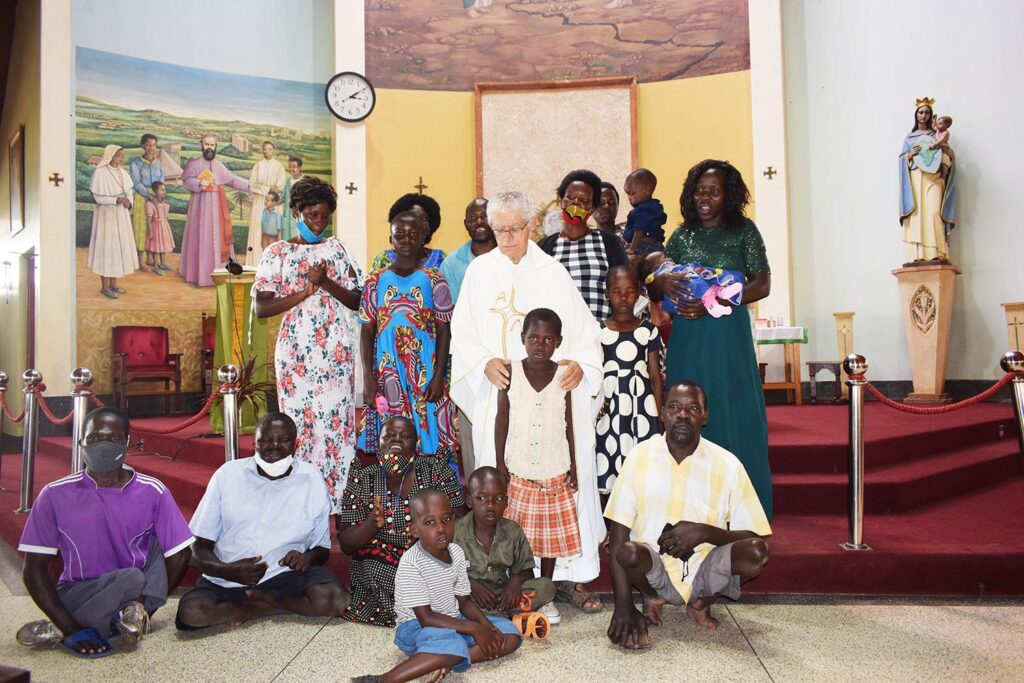
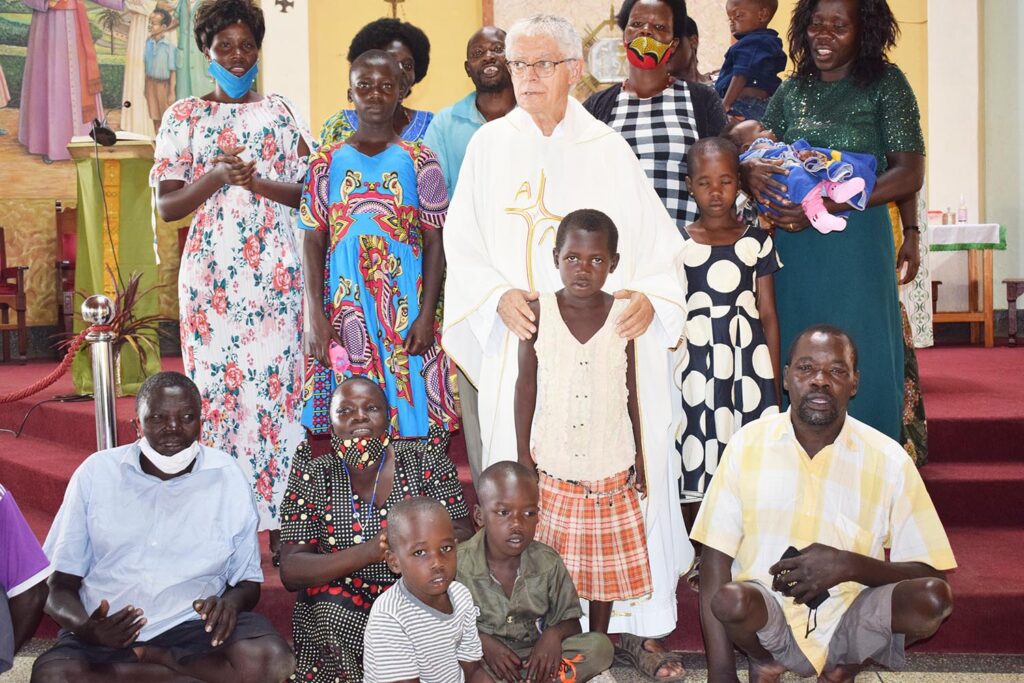
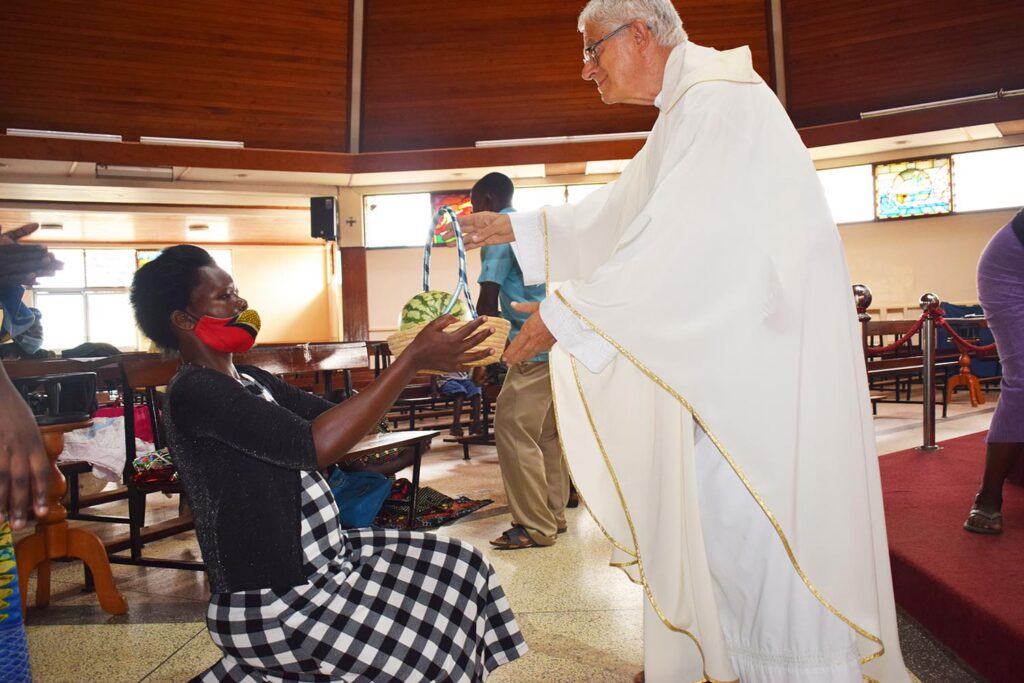
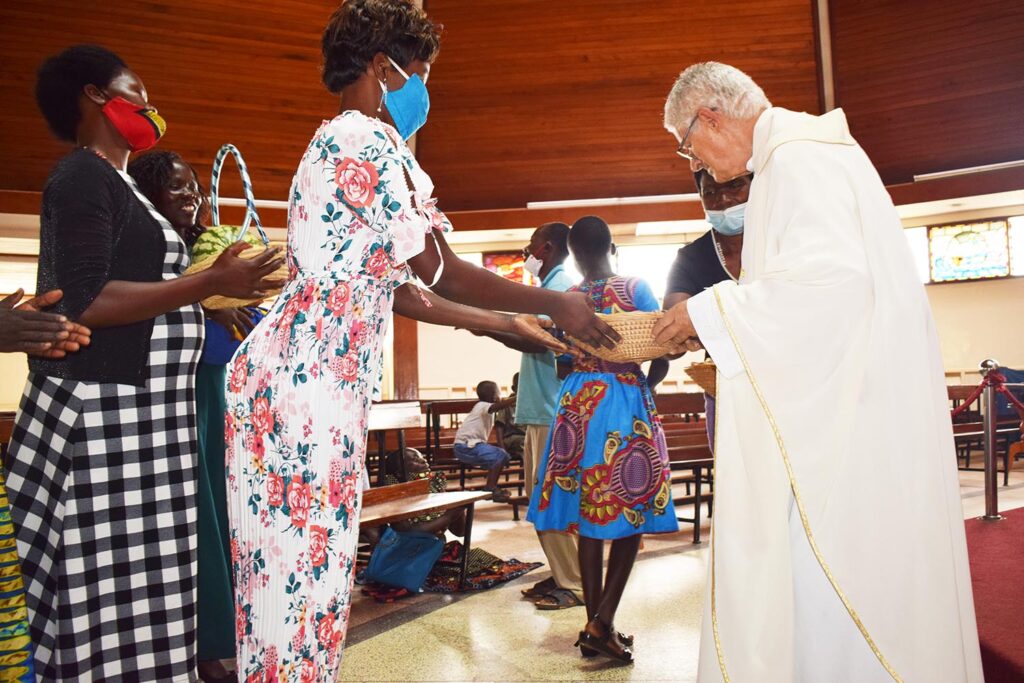
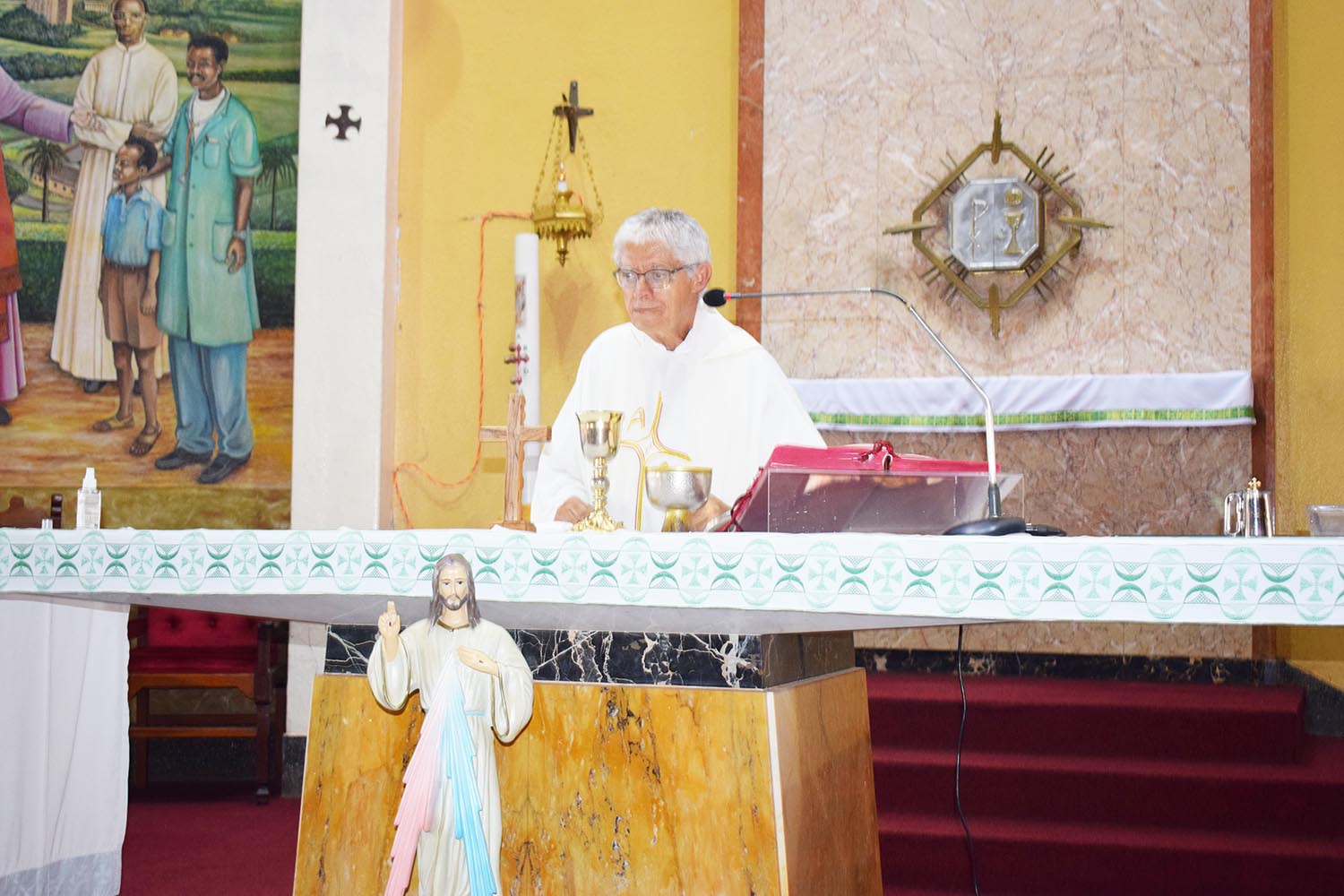
Leave a Reply